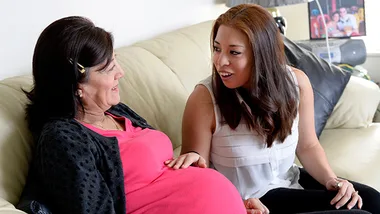If you’re one of the many women hearing their body clock ticking, you may be heartened by the wave of celebrities giving birth over age 40 — and by the news that pregnancy in women over age 50 may be as safe as in younger women who use donated eggs.
A new study has produced findings on the success rates and risks of in-vitro fertilisation (IVF), which has allowed post-menopausal women to conceive, with a few women even becoming pregnant in their sixties.
Over a decade, researchers at Columbia University in the United States examined 101 women age 50 and over who had been implanted with embryos using egg cells donated by younger women.
Results confirmed that the rate of complications, such as preterm labour and gestational diabetes, were similar to those for pregnant women age 42 and under, who also received donated eggs.
“These women do really pretty well,” said Dr Mark Sauer, senior author of the article and chief of the division of reproductive endocrinology and infertility at Columbia University.
“Given adequate hormones, an older woman’s uterus can sufficiently nourish a growing foetus. If they’re well-screened and well cared for, they really should do okay,” he said.
While it seems that women age 50 and over are still able to carry pregnancies to term, the cut-off age for successful IVF using a woman’s own eggs is much lower, at age 43.
“Under a microscope, the uterus changes very little with age,” Dr Sauer said. “[But] the uterus is a very different organ than the ovaries.”
Dr Sauer also noted that it is still extremely uncommon for women to become pregnant after 50, and that all participants in the study were monitored very carefully and were highly motivated.
He also made it clear that the process was long and arduous; saying that even with donated eggs, the success rate of IVF births for women 40 and older is only 50 percent, and this is also before the physical, emotional and financial costs are considered.
The study is the largest to examine post-menopausal pregnancy to date, and was published in this month’s issue of the American Journal of Perinatology.
Have your say: would you consider pregnancy in your 50s?


